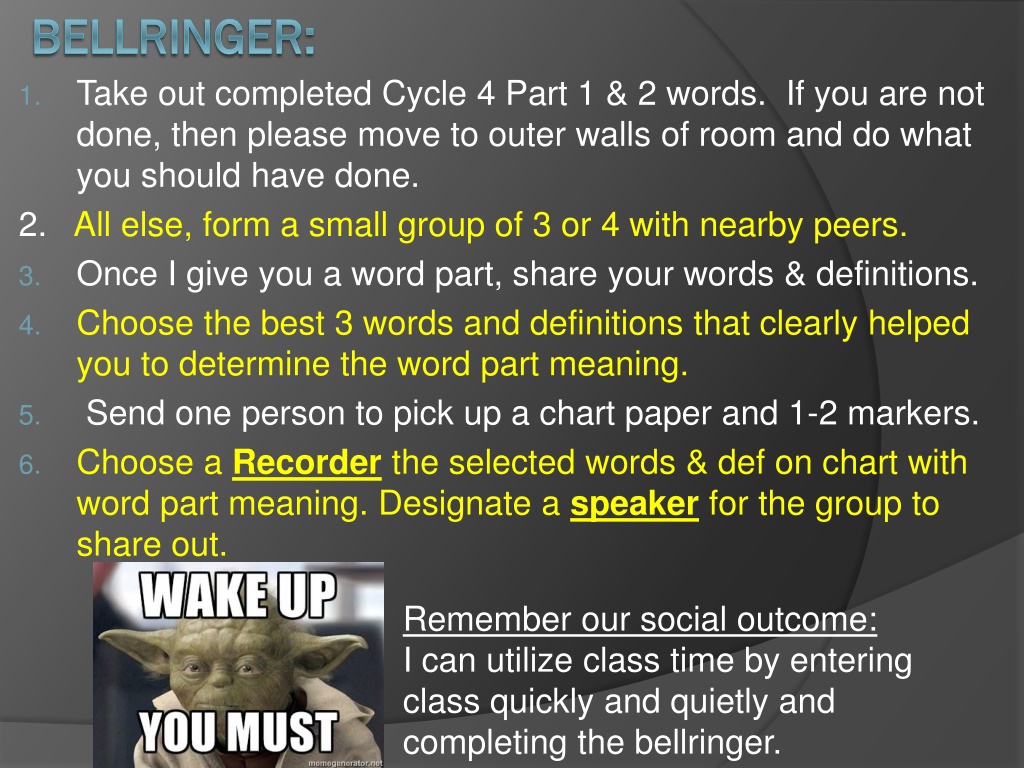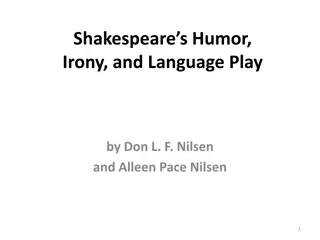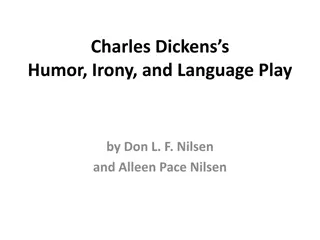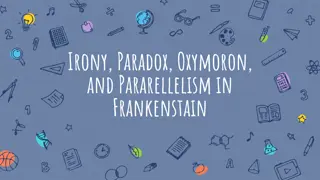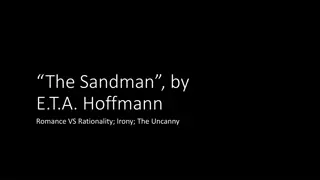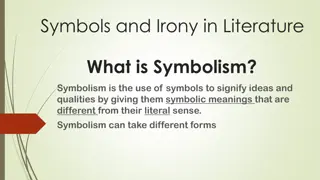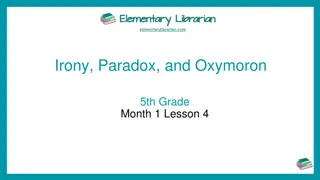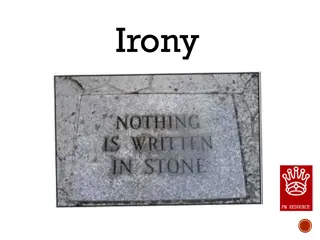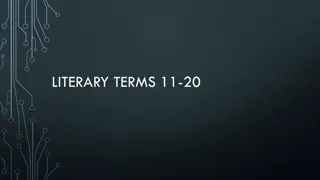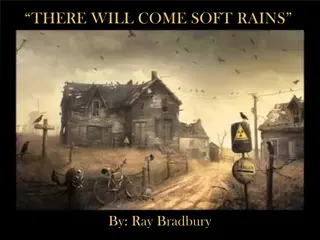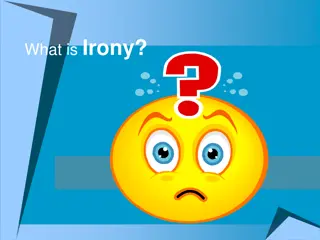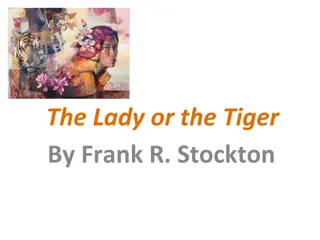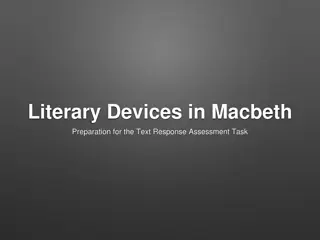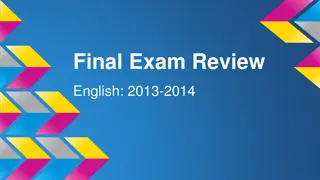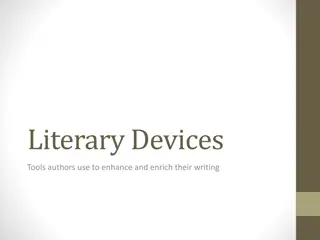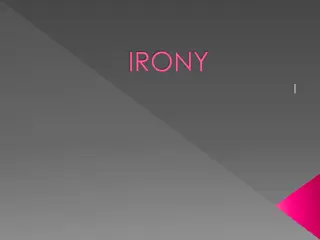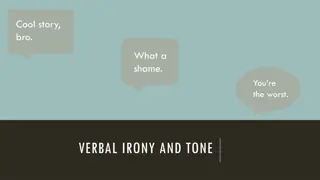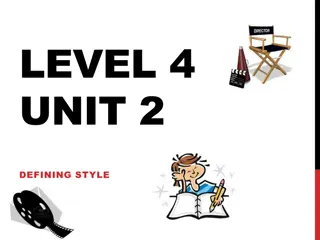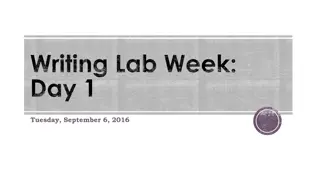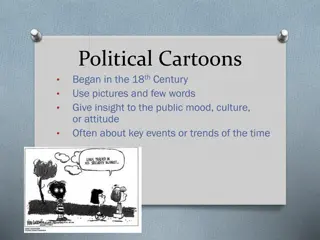Understanding Irony: Types, Examples, and Analysis in Literature
Explore the concept of irony in literature through definitions, types, examples, and analysis. Learn how authors use irony to create depth and meaning in their works. Discover different forms of irony such as verbal, situational, and dramatic, along with examples to enhance understanding. Delve into how irony impacts storytelling and engages readers by creating unexpected twists and contrasts. Practice identifying irony through text evidence and analyzing its effects on narratives.
Download Presentation

Please find below an Image/Link to download the presentation.
The content on the website is provided AS IS for your information and personal use only. It may not be sold, licensed, or shared on other websites without obtaining consent from the author. Download presentation by click this link. If you encounter any issues during the download, it is possible that the publisher has removed the file from their server.
E N D
Presentation Transcript
BELLRINGER BELLRINGER: : Take out completed Cycle 4 Part 1 & 2 words. If you are not done, then please move to outer walls of room and do what you should have done. 2. All else, form a small group of 3 or 4 with nearby peers. Once I give you a word part, share your words & definitions. Choose the best 3 words and definitions that clearly helped you to determine the word part meaning. Send one person to pick up a chart paper and 1-2 markers. Choose a Recorder the selected words & def on chart with word part meaning. Designate a speaker for the group to share out. 1. 3. 4. 5. 6. Remember our social outcome: I can utilize class time by entering class quickly and quietly and completing the bellringer.
Cycle 4 Part 2 Word Meanings: -port- -duc-/-duct- de- -tract- -ness- -cred-
Outcomes I can identify irony and classify its type in a text. I can analyze how an author s use of irony impacts the texts as a whole.
What is Irony? What is Irony? Def: A contrast between what is expected and what really happens. A literary device that authors use to: Examine contradictions and form opinions Heighten emotions Makes a sad situation tragic Makes what should be a sad situation humorous Emphasize an idea
Prog Report Text Evidence of Charlie s Misunderstandings of words and situations Is this Irony? If yes, what type of Irony? Explain how you came to this conclusion
Closure: Identify what kind of irony is being displayed and describe the irony. Write the type of irony and your description of it in your binder.
Independent Time Independent Time 1. Continue reading, annotating, and looking for examples of irony in FFA through Progress Report 8 (Write examples of irony in binder.) 2. Work on Cycle 4; Part 3 vocab. (Due Wed.) 3. Practice skills learned in class for test coming up on Wednesday. (Irony, Mythology, Vocab, and annotating for elements of fiction)
